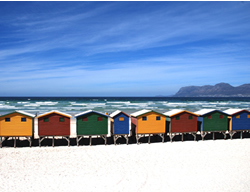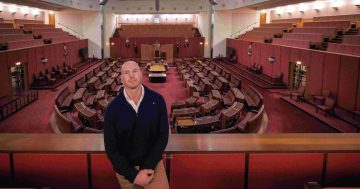Mike Bruce* says the ATO is preparing to crack down on Australians who may have been trying a little too hard to maximise the tax deductibility of their holiday homes.
 The holiday home, the weekender, the beach house.
The holiday home, the weekender, the beach house.
Whatever we call it, it’s an institution that for years has offered a win-win for many Australians, providing both a refuge and an investment vehicle — one with significant tax deductibility.
But if you’ve been trying a little too hard to maximise that tax deductibility, you may be about to come under the microscope of the Australian Taxation Office (ATO).
ATO Deputy Commissioner, Kath Anderson told The New Daily that the Agency would be cracking down on the “mistakes, errors and false claims” being made by some holiday homeowners.
In one case unearthed by the ATO, a Victorian holiday homeowner claimed a staggering $750,000 in deductions over a two-year period, despite a declared income of just $27,000 over that same period.
The home was also found to have been available for just 13 per cent of that time.
In another case, a NSW Central Coast homeowner declared income of $9,000 against deductions of $86,000, when the home was available for only 15 per cent of the year.
The problem of claims disproportionate to the income received for holiday homes has become “one of our higher priority items”, and the ATO will be investing “more resources” into weeding out overzealous claims, Ms Anderson confirmed.
The main source of the problem is the tendency of owners to claim deductions for periods when the home was not being rented, or claiming full deductions when the home was rented at “mates’ rates”.
“You can only claim deductions for your holiday home if your property is genuinely available for rent,” she said.
“You cannot claim for times when you were using it for your own personal holidays, or letting friends and family stay rent-free.”
“It’s not OK to expect everyone else to pay for your holiday.”
“Holiday homeowners also need to remember that if their property is rented to friends and family at ‘mates’ rates’, they can only claim deductions for expenses up to the amount of the income received.”
The ATO estimates Australia has two million rental properties, of which about 350,000 (or 17 per cent) are in centres that could be deemed holiday spots.
Another issue involved some owners advertising the property at rates that effectively made it unrentable.
“We see things like unreasonable conditions placed on prospective renters, rental rates set above market rates, or failing to advertise a holiday home in a way that targets people who would be interested in it,” Ms Anderson said.
Ms Anderson said it was difficult to quantify the extent and cost of the problem, but the ATO was “seeing quite a few errors and mistakes” in deductions.
The same rules apply if you are renting out a house or unit, or even a room in a house or unit, through peer-to-peer services such as Airbnb, she said.
But you need to apportion the expenses accordingly, claiming the allowable expense relative to the floor area being rented out.
You can also add to that a reasonable amount based on your guests’ access to common areas.
The rules
The principles that apply to a rental property also apply to a holiday home if it is rented out.
If you rent out your holiday home, you can claim expenses for the property based on the proportion of the income year it was rented out or was genuinely available for rent.
You have to apportion your expenses between periods of:
- genuine rental
- private use, such as using it yourself, or allowing family, friends or relatives to use it for free
- use by family or friends at rates below market rent.
Most common deductions
- Fees or commission charged by an agent or facilitator.
- Council rates.
- Interest on a loan for the property.
- Electricity and gas.
- Property insurance.
- Cleaning and maintenance costs (products used or hiring a commercial cleaner).
* Mike Bruce is PM Update Editor with The New Daily. He tweets at @miketbruce.
This article first appeared at thenewdaily.com.au.











